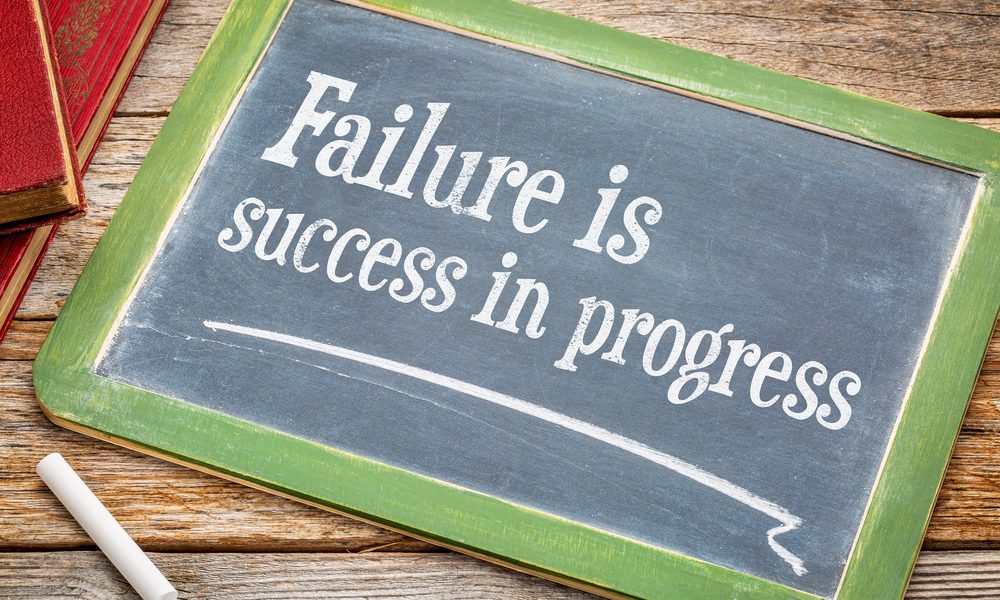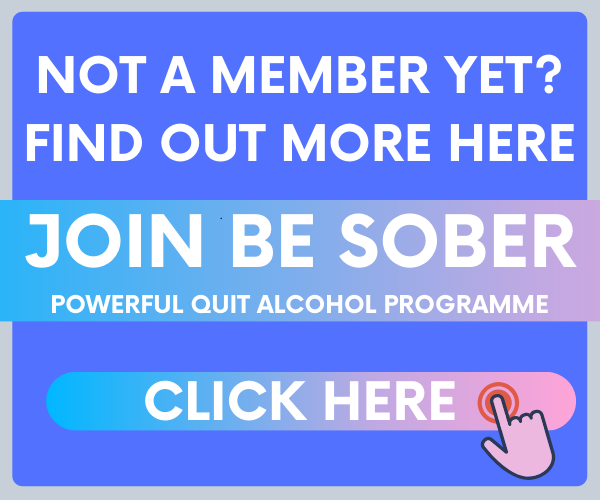If you are calling yourself a failure after trying to quit alcohol for the 100th time and slipping up by having a drink, my advice is to take a step back and a deep breath.
First of all, you are not a failure. The fact you have realised you have a problem with drinking and want to change your relationship with alcohol is the first step on the journey, so well done.
I have been there, I have felt like a failure after promising myself (and my Wife) I was going to stop (many times) only to find myself finishing off a bottle of red wine later that evening. It took me several attempts to even get past day one, I had drunk every day for twenty-plus years and it was a huge change for me and I struggled at the start.
I clearly remember having a meltdown and crying in my Wifes’ arms because I felt like I was stuck in a loop of drinking and wanting to quit, I believed that I couldn’t live without alcohol but knew I needed to stop and just didn’t know how to go forward.
Don’t beat yourself up, this is part of the journey – you need to treat yourself the same way you would treat a good friend, imagine if they came to you saying how they felt a failure because they couldn’t stop drinking. You wouldn’t give them a hard time would you? No, you would treat them with love and compassion and remind them how well they had done for taking the first steps to sobriety. This is how you need to treat yourself, stop beating yourself up and treat yourself kindly.
Having personally been through these feelings I think there are a number of reasons why it takes us several attempts to stop drinking:
- We keep using the same approach. We decide we are stopping drinking and then try and white-knuckle it without the right tools or support around us. This will generally lead to a feeling of missing out and longing for your old friend (alcohol) back in your life and there is a good chance sobriety will only be short term.
- We don’t plan for our sober-journey. I do a lot of marathon running and I would never find myself on the start line without having planned ahead and trained for the event, sobriety is similar and we need to ensure we are fully prepared for what lies ahead. Plan ahead, write down on a piece of paper the pros and cons of drinking, think about what alcohol-free alternatives you will have instead, what activities you will do with the extra spare time, keep a journal so you can express how you feel, visualise yourself in 12 months from now living sober and happy.
- Look at the data – when we slip up and take a drink, look at the reasons why, what triggered it to happen? In the future you can learn from this and be armed and ready when the same triggers arise.
- Look at your routines and habits, if you were drinking in certain situations or at particular locations it may be best to stay away from them for a while. I used to drink in the evenings in front of the TV after my Son had gone to bed, so I often go to the gym now or out for a run.
- We don’t change our mindset from ‘Can’t Have’ a drink to ‘Don’t Want’ one – this really is the key. Once you change your mindset about alcohol it becomes a lot easier and the chances of drinking again will reduce dramatically. I managed to change my mindset by reading sober-books, This Naked Mind was a game-changer for me. I also signed up to The Alcohol Experiment which is a free 30-day tool to hold your hand through the first month of sobriety. I still read a lot of sober-books now as I want to learn and understand as much as possible to ensure I stay on the right path.
- You didn’t get excited about becoming sober, instead you felt that giving up alcohol was a hardship. When I sign up for a marathon race I get really excited about it and throw myself into training and focus hard on what lies ahead, the sober-journey is very similar. There are so many benefits that await you from quitting alcohol (many of which you won’t know about at the start), this is why reading a few sober-books will help as you will know what to expect and will have a sense of excitement about all the wonderful things that will be happening to your mind, body and your life. If you can approach the sober-journey with a sense of excitement and make it feel like an enjoyable personal challenge you will stand a much higher chance of success.
- Fear – You fear that your life won’t be fun any longer. You fear that your friends won’t like you sober. You fear you can’t do it. You fear you will be missing out. You fear failure (this list could go on an on), the point is that you have to face these fears in order to get sober and the good news is that they are never as bad as you imagine, in fact most of them are the complete opposite, especially if you can embrace and enjoy your new sober-life you will have a feeling of ‘BRING IT ON’.
- Always remember EVERYTHING PASSES – when you feel down or craving a drink make sure you remember this, the feelings will go and you will soon feel normal again, don’t get swept away by the thoughts that come into your head about drinking, sit back and let them pass you by.
- Remember that failure is part of the journey to success, the fact you are reading this says that you are serious about quitting and have already put your first foot forward.
- You didn’t have the right support network around you – make sure you join a sober-group, you need to be able to talk to other people and share your feelings. You will also be able to help other people by sharing your own experiences. You could attend AA meetings in person, or join an online group like the Be Sober private Facebook group, whatever works best for you.
So please don’t call yourself a failure, I know from experience how it feels and I have been there (and yes I did call myself a failure). Believe me that if you take the time to research, prepare and embrace sobriety you will stand a really high chance of staying sober long-term.
JOIN THE DISCUSSION AND LEAVE A COMMENT BELOW






